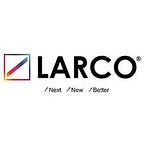WHAT IS THE PH OF DEALKALIZER WATER?
Welcome to Larco India Pvt Ltd, Pune! We are a leading provider of comprehensive water treatment solutions, and we are excited to delve into the fascinating topics of dealkalization, the pH of dealkalizer water, and the alkalinity of RO water. Our aim is to provide you with detailed insights into these subjects, enabling you to make informed decisions for your specific water treatment needs. Let’s explore each topic in depth.
WHAT IS THE PURPOSE OF DEALKALIZATION?
The dealkalization unit, a crucial step in water treatment, concentrates on removing alkaline minerals. Calcium and magnesium carbonates are the main alkaline minerals. Reducing the alkalinity of water is de- alkalization’s main goal. Alkalinity, which will correspond to the presence of alkaline ions such as hydroxide, carbonate, and bicarbonate, can cause a number of issues in industrial and commercial applications.
Scale formation is a major issue brought on by high alkalinity. When heated, water with a high alkalinity level has the propensity to deposit scale on heat transfer surfaces. This scale of building decreases the effectiveness of heat transfer, increases energy use, and can cause equipment failure. Dealkalization helps in preventing the buildup of scale, extending the useful life, and enhancing the general effectiveness of heat exchange equipment, including boilers, cooling towers, and other systems that make use of heat transfer processes.
High alkalinity can also contribute to corrosion in equipment and pipelines made of metal. Dealkalization helps to decrease corrosion hazards by lowering alkalinity, thereby defending your infrastructure and saving money on maintenance. In order to ensure effective and efficient operation throughout your industrial or commercial site, the procedure is also essential for optimizing various water treatment processes.
What is the pH of dealkalizer water?
The pH is below 3.0 when hydrogen is present. Water with no carbonate or hydroxide alkalinity has a pH lower than 4.3.
The exact dealkalization procedure used and the properties of the influent water are two elements that have an impact on the pH of dealkalizer water. Strong base anion exchange resins or weak acid cation exchange resins are commonly used in dealkalization. These resins make it easier for alkaline ions to swap places with other ions in the resin, which lowers alkalinity.
Depending on the make-up of the influent water and the particulars of the deacidification system, the pH of the treated water can change. Dealkalizer water typically has a pH that is slightly acidic or close to neutral.
It is crucial to remember that the pH level may change depending on the design and modifications made to best suit your particular water quality requirements during the dealkalization process.
We at Larco India Pvt Ltd are aware of the importance of preserving the proper pH range for your particular application. To build and execute a dealkalization system that assures ideal pH levels and thereby maximizes the effectiveness and longevity of your equipment, our qualified staff will work directly with you.
Is RO water high in alkalinity?
Reverse osmosis (RO) is a very efficient method of water filtration that eliminates dissolved salts and minerals as well as other contaminants. Although RO is effective at lowering total dissolved solids, it is not intended to precisely address alkalinity. The amount of alkalinity in the source water that enters the RO system has a significant impact on the alkalinity of the RO water.
Lower amounts of alkalinity will be present in the RO water if the source water has high alkalinity because the RO system will also remove a considerable amount of the alkalinity. However, the RO process may not have a substantial impact on the alkalinity levels in the treated water if the source water contains low alkalinity.
RO plant
It is important to keep in mind that additional elements, such as the RO system’s design, the characteristics of the membrane, and any later changes or treatments given to the water after the RO process, may affect the pH and alkalinity of the finished RO water.
If your intended usage has specific alkalinity requirements, it will urge you to measure and monitor the levels frequently in order to accurately analyze the alkalinity of RO water. To make sure that your RO water system complies with the required quality standards, Larco India Pvt Ltd Pune offers cutting-edge water testing and monitoring systems.
Conclusion
Larco India Pvt Ltd, based in Pune, takes great satisfaction in providing complete water treatment solutions that meet your unique requirements. Dealkalization is an essential procedure that efficiently lowers alkalinity, avoiding the development of the scale, corrosion, and other related problems in industrial and commercial applications. While the alkalinity of RO water depends on the levels of alkalinity present in the source water, dealkalizer water normally has a pH that is somewhere between neutral and slightly acidic.
Modern technologies and customized dealkalization solutions are what our team of professionals will dedicate themselves to offering you. Explore our selection of water treatment services today, and get in touch with us to find out how Larco India Pvt Ltd can help you get the best performance, effectiveness, and lifespan out of your water systems
